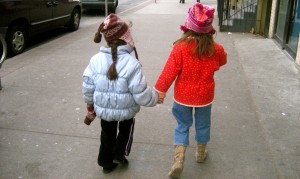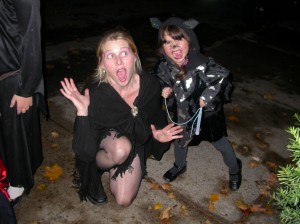“The foundations of social competence that are developed in the first five years are linked to emotional well-being and affect a child’s later ability to functionally adapt in school and to form successful relationships throughout life.” – US National Scientific Council on the Developing Child
What is Social-Emotional Development?
Social-emotional development is a combination of social development and emotional development. It refers to a child’s capacity for confidence in oneself, trust, and empathy as well as the capacity to develop competencies in language usage and cognitive curiosity. Positive social-emotional growth builds the communication skills necessary for learning throughout a child’s life.

Cognitive growth does not happen in isolation, nor when lost in a crowd. It comes through curiosity and interaction.
Early core experiences shape the developing nervous system and determines how stress is interpreted and responded to in the future. Cortisol levels rise in a stressed/anxious child. Good emotional regulation depends on feelings flowing freely through the body whilst having the mental capacity to notice and reflect on them and to choose whether or not to act on them.

Community – Social/Cognitive growth
- Strong social-emotional development is a predictor of later academic, social, and emotional success.
- The ability to interact with others including teachers and peers is a direct result of early relationships.
The Creative Play Studio – Where smart, self-directed play reigns
Sociodramatic Play contains key elements for strong social-emotional growth.
 Sociodramatic Play involves four elements:
Sociodramatic Play involves four elements:
- The child undertakes a make-believe role
- The child uses make-believe to transform objects into things necessary for the play.
- Verbal exclamations or descriptions are used at times in place of actions or situations.
- The play scenarios last at least ten minutes.
See how Storytelling enhances social-emotional skills.
Social-emotional skills
• Confidence – A child will be able to participate in child-directed play
• Curiosity – A child will take interest in the world outside of themselves
• Intentionality – A child will be able to take the initiative in activities
• Self-Control – A child will be able to sit calmly and listen to a story
• Relatedness – A child will show concern for a hurt or upset friend
• Capacity to Communicate – A child will be able to work through conflict with peers
• Cooperativeness – A child will be able to fully participate in a group activity

